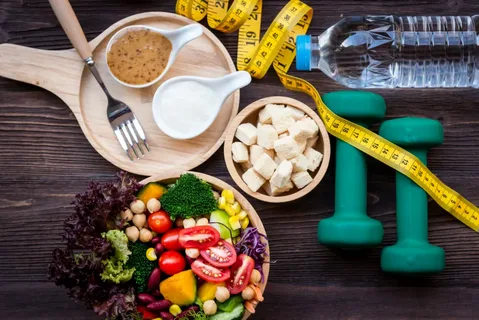Vitamin D, often called the “sunshine vitamin,” plays a critical role in maintaining bone health, supporting the immune system, and enhancing mood. However, with so many vitamin D supplements available on the market, selecting the right one can be daunting. This guide aims to simplify your decision-making process, providing you with expert advice to choose the best vitamin D supplement tailored to your needs.
Understanding Vitamin D
What is Vitamin D?
Vitamin D is a fat-soluble vitamin essential for the absorption of calcium and phosphorus in the body. It is crucial for maintaining healthy bones and teeth, supporting the immune system, brain, and nervous system, and regulating insulin levels.
Types of Vitamin D
There are two main types of vitamin D:
- Vitamin D2 (ergocalciferol): Derived from plant sources and fungi.
- Vitamin D3 (cholecalciferol): Sourced from animal-based foods and synthesized in the skin in response to sunlight.
Benefits of Vitamin D
- Bone Health: Helps in calcium absorption, crucial for strong bones and teeth.
- Immune Support: Enhances the pathogen-fighting effects of monocytes and macrophages.
- Mood Regulation: Linked to mood improvement and the prevention of mood disorders.
Factors to Consider When Choosing a Vitamin D Supplement
Your Health Needs
Before selecting a supplement, assess your health needs:
- Bone Health: If you are at risk of osteoporosis, a higher dose of vitamin D3 may be beneficial.
- Immune Support: For immune enhancement, both D2 and D3 are effective, but D3 is generally preferred for its potency.
- Mood Improvement: D3 is often recommended for its potential mood-boosting effects.
Dosage Requirements
- Daily Recommendations: The recommended dietary allowance (RDA) varies by age, gender, and life stage. For most adults, 600-800 IU is adequate, but higher doses may be necessary for those with deficiencies.
- Blood Levels: A blood test can determine your current vitamin D levels, guiding your dosage requirements.
Form of Supplement
Vitamin D supplements come in various forms:
- Capsules/Tablets: Convenient and widely available.
- Liquids: Ideal for those with difficulty swallowing pills.
- Gummies: A tasty option for children and adults.
- Sprays: Easy to use and quickly absorbed.
Quality and Purity
- Third-Party Testing: Choose supplements that have been third-party tested for quality and purity.
- Ingredients: Check for any additional ingredients or allergens.
Absorption and Bioavailability
- Vitamin D3 vs. D2: D3 is generally more effective at raising and maintaining vitamin D levels in the blood.
- Fat-Soluble: Since vitamin D is fat-soluble, taking it with a meal containing fat can enhance absorption.
Top Vitamin D Supplements
Best Overall: NatureWise Vitamin D3
- Dosage: 5,000 IU per capsule
- Form: Softgel
- Benefits: High potency, non-GMO, and gluten-free.
Best for Vegetarians: Doctor’s Best Vitamin D2
- Dosage: 2,000 IU per tablet
- Form: Tablet
- Benefits: Plant-based, suitable for vegetarians.
Best for Kids: Nordic Naturals Vitamin D3 Gummies
- Dosage: 400 IU per gummy
- Form: Gummy
- Benefits: Kid-friendly, natural fruit flavor.
Best Liquid: Pure Encapsulations Vitamin D3 Liquid
- Dosage: 1,000 IU per drop
- Form: Liquid
- Benefits: Easy to adjust dosage, hypoallergenic.
How to Take Vitamin D Supplements
Timing
- Morning or Afternoon: Taking vitamin D in the morning or afternoon can align with natural sunlight exposure.
- With Meals: Enhance absorption by taking your supplement with a meal that includes fat.
Consistency
- Daily Intake: Consistency is key for maintaining optimal vitamin D levels. Take your supplement at the same time each day.
Monitoring
- Blood Tests: Periodic blood tests can help monitor your vitamin D levels and adjust your dosage if necessary.
Potential Side Effects and Risks
Overdose
- Toxicity: Taking too much vitamin D can lead to toxicity, causing symptoms like nausea, vomiting, weakness, and serious complications like kidney damage.
- Upper Limits: The safe upper limit for most adults is 4,000 IU per day, but always consult with a healthcare provider before taking high doses.
Interactions
- Medications: Vitamin D can interact with certain medications, such as steroids and weight-loss drugs, affecting absorption and efficacy.
- Health Conditions: Individuals with conditions like hypercalcemia should consult their doctor before taking vitamin D supplements.
FAQs
How do I know if I need a vitamin D supplement?
A blood test measuring your 25-hydroxyvitamin D level is the best way to determine if you need a supplement. Symptoms of deficiency include fatigue, bone pain, muscle weakness, and mood changes.
Can I get enough vitamin D from sunlight alone?
While sunlight is a natural source of vitamin D, factors like geographic location, skin color, sunscreen use, and time spent outdoors can affect how much vitamin D your body produces. Supplements can help fill any gaps.
Is vitamin D2 or D3 better?
Vitamin D3 is generally more effective at raising blood levels of vitamin D and is the preferred choice for most people. However, vitamin D2 is suitable for vegetarians and vegans.
How long does it take for vitamin D supplements to work?
It can take several weeks to months of consistent supplementation to raise your vitamin D levels, depending on the severity of the deficiency.
Can I take vitamin D with other supplements?
Yes, vitamin D can be taken with other supplements. In fact, it often works synergistically with calcium, magnesium, and vitamin K2 for bone health.
What are the symptoms of vitamin D deficiency?
Symptoms of deficiency include fatigue, bone pain, muscle weakness, mood changes, and in severe cases, rickets in children and osteomalacia in adults.
Can I take too much vitamin D?
Yes, excessive intake of vitamin D can lead to toxicity, causing symptoms like nausea, vomiting, weakness, and serious health issues such as kidney damage. Always follow recommended dosages and consult with a healthcare provider.
Are there any side effects of taking vitamin D supplements?
When taken within recommended dosages, vitamin D supplements are generally safe. However, excessive intake can lead to side effects such as hypercalcemia, nausea, and kidney problems.
Is it safe to take vitamin D supplements during pregnancy?
Yes, vitamin D is important during pregnancy for the health of both the mother and the baby. However, it is important to consult with a healthcare provider to determine the appropriate dosage.
How do I store vitamin D supplements?
Store vitamin D supplements in a cool, dry place away from direct sunlight to maintain their potency and shelf life.
Conclusion
Choosing the best vitamin D supplement requires careful consideration of your health needs, dosage requirements, supplement form, and quality. By understanding the different types of vitamin D, the benefits they offer, and how to incorporate them into your daily routine, you can make an informed decision that supports your overall health and well-being. Always consult with a healthcare provider before starting any new supplement regimen to ensure it aligns with your specific health needs.
4o
- What Is The Relationship Escalator And Should You Follow It? - June 2, 2025
- What Helps Lip Filler Swelling - June 1, 2025
- The Evolution Of Graysexuality And Its Influence On Modern Dating Trends - June 1, 2025

